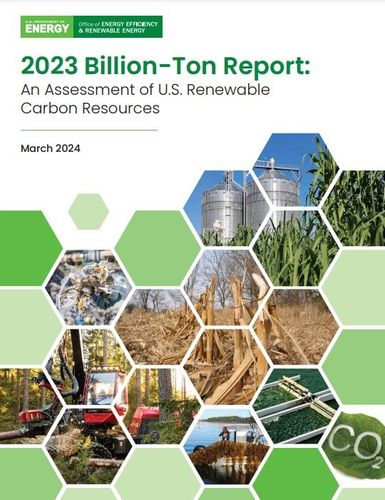DOE report explains how America can sustainably produce more than 1 billion tons of biomass per year

SOURCE: U.S. Department of Energy
March 15, 2024
BY U.S. Department of Energy
Advertisement
Advertisement
Related Stories
EPA releases rulemaking to reallocate waived RFS volumes, biofuel industry expresses cautious optimism
The U.S. EPA on Sept. 16 released a supplemental notice of proposed rulemaking (SNPRM) that considers several options for reallocating RFS renewable volume obligations (RVOs) waived under the small refinery exemption (SRE) program.
The U.S. EPA on Sept. 12 released a proposed rule to end the Greenhouse Gas Reporting Program. If finalized, the proposal would remove reporting obligations for most large facilities, all fuel and industrial gas suppliers, and CO2 injection sites.
The Coalition for Renewable Natural Gas and American Fuel & Petrochemical Manufacturers in September filed separate lawsuits challenging the U.S. EPA’s final rule to partially waive 2024 cellulosic blending obligations under the RFS.
The USDA maintained its 2024-’25 and 2025-’26 forecasts for soybean oil use in biofuel production in its latest WASDE report, released Sept. 12. The estimate for 2023-’24 soybean oil use in biofuel production was revised up.
The USDA increased its forecast for 2025 soybean production in its latest Crop Production report, released Sept. 12. Soybean production for beans is forecast at 4.3 billion bushels, up slightly from the August forecast, but down 2% from last year.





